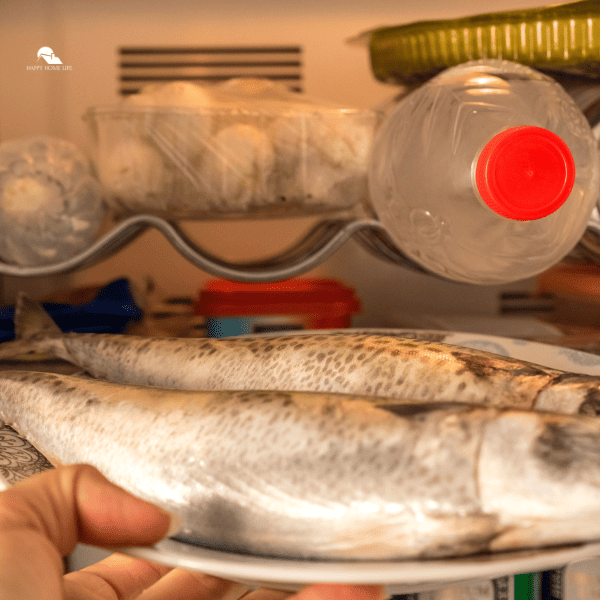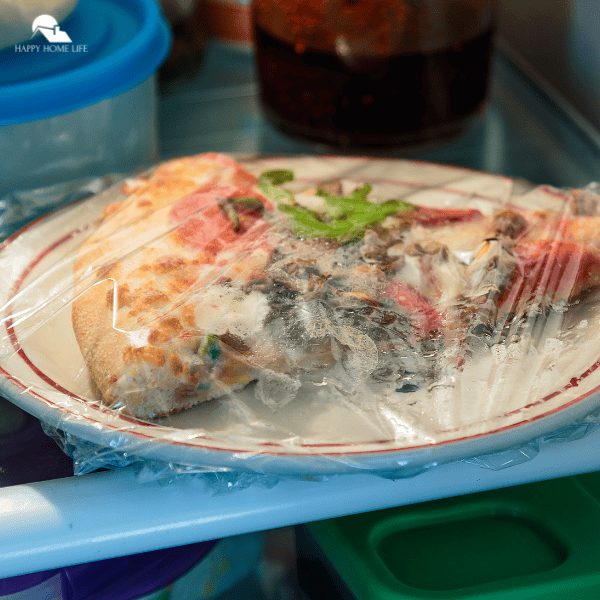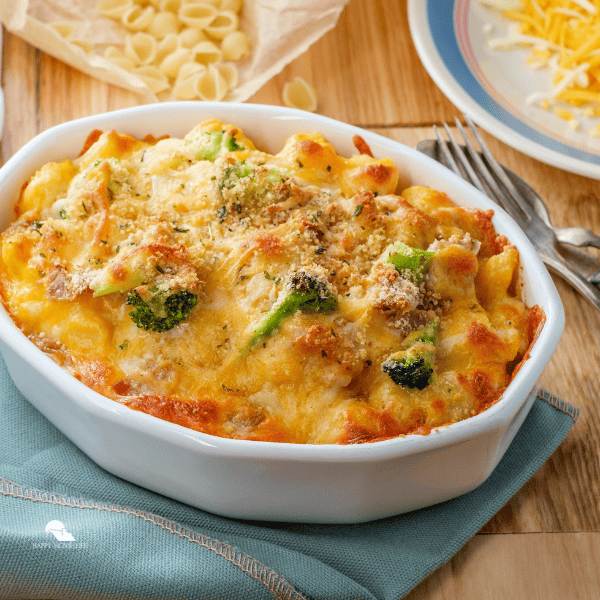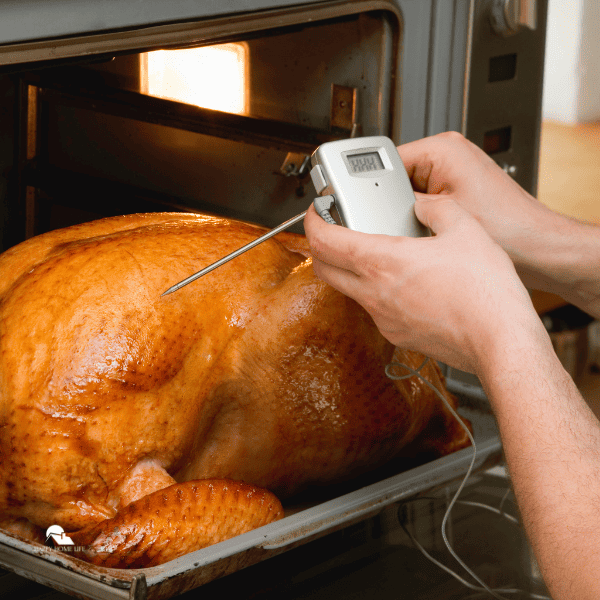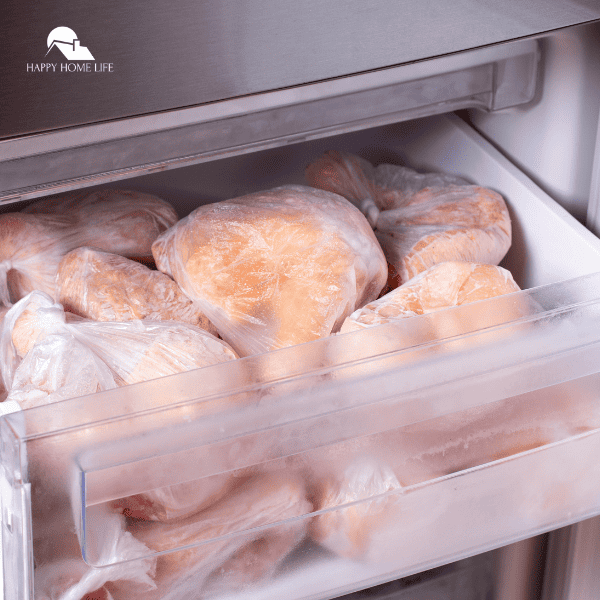Homemade spaghetti sauce with meat is a delicious and hearty dish that many people love to make at home. However, when it comes to storing the leftovers, it can be difficult to know how long it will last in the fridge. The good news is that with proper storage techniques, homemade spaghetti sauce with meat can last for a reasonable amount of time in the fridge.
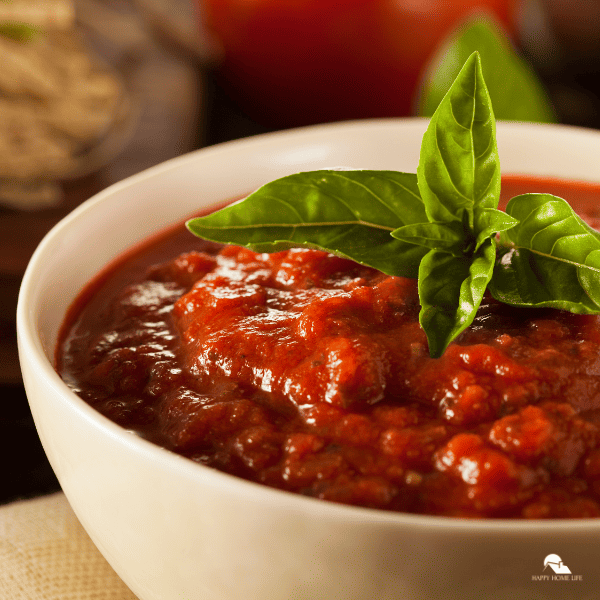
How Long Does Homemade Spaghetti Sauce with Meat Last in the Fridge
According to several sources, homemade spaghetti sauce with meat can last in the fridge for up to 3-4 days if stored properly. It is best to store the sauce in an airtight container to prevent bacteria growth. When reheating the sauce, it is important to bring it to a simmer to kill any bacteria that may have formed. If you want to extend the shelf life of your spaghetti sauce with meat, you can freeze it for up to 4-6 months.
It is important to note that the shelf life of homemade spaghetti sauce with meat can vary depending on factors such as the temperature of the fridge, exposure to bacteria, and any contamination that may occur before storing the sauce.
By following proper storage techniques and using your best judgment, you can enjoy your homemade spaghetti sauce with meat for several days or even freeze it for later use.
You might enjoy these posts:
- How Long Does Grated Parmesan Cheese Last in the Fridge?
- How Long Does Cooked Hamburger Last in the Fridge?
- What Can I Put on Pasta if I Don’t Have Tomato Sauce?
The Impact of Ingredients on Shelf Life
The shelf life of homemade spaghetti sauce with meat can be affected by various ingredients. Here are some factors that can impact the sauce’s shelf life:
Meat
Meat can shorten the shelf life of spaghetti sauce. If the sauce contains meat, it should be consumed within three to four days of preparation. If the sauce is not consumed within this time frame, it should be discarded to avoid the risk of foodborne illness.
Dairy
Dairy products, such as cream and cheese, can also reduce the shelf life of spaghetti sauce. If the sauce contains dairy products, it should be consumed within three to four days of preparation. If the sauce is not consumed within this time frame, it should be discarded.
Vinegar
Vinegar is a natural preservative that can help extend spaghetti sauce’s shelf life. If the sauce contains vinegar, it may last up to a week in the fridge.
Sugar
Sugar can also help extend the shelf life of spaghetti sauce. If the sauce contains sugar, it may last up to a week in the fridge.
Lemon Juice
Lemon juice is another natural preservative that can help extend the shelf life of spaghetti sauce. If the sauce contains lemon juice, it may last up to a week in the fridge.
Proper Storage of Homemade Spaghetti Sauce
When it comes to storing homemade spaghetti sauce with meat, follow proper storage guidelines to ensure that it stays fresh and safe to consume. Here are some tips for storing homemade spaghetti sauce with meat:
- Refrigerate: Once the sauce has cooled down to room temperature, transfer it to an airtight container and refrigerate it immediately. Homemade spaghetti sauce with meat can last up to 3-4 days in the refrigerator if stored properly.
- Airtight containers: Always store the sauce in an airtight container to prevent it from drying out and to keep it fresh. You can use a glass jar with a tight-fitting lid or an airtight container made of plastic.
- Storage: Store the container in the coldest part of the fridge, which is usually the back of the fridge. This will help keep the sauce at a consistent temperature and prevent it from spoiling.
- Cupboard or pantry: Unopened jars of pasta sauce can be stored in a cupboard or pantry at room temperature. However, once opened, they should be refrigerated and used within 4-5 days.
It is important to note that homemade spaghetti sauce with meat should not be left at room temperature for more than two hours. If left out for longer than two hours, bacteria can grow rapidly, which can cause the sauce to spoil and become unsafe to consume.
How Long Does It Last in the Fridge
Generally, homemade spaghetti sauce with meat can last in the fridge for 3-4 days if stored properly. It is important to cool the sauce to room temperature before storing it in an airtight container or freezer bag. Label the container with the date it was made to help keep track of its freshness.
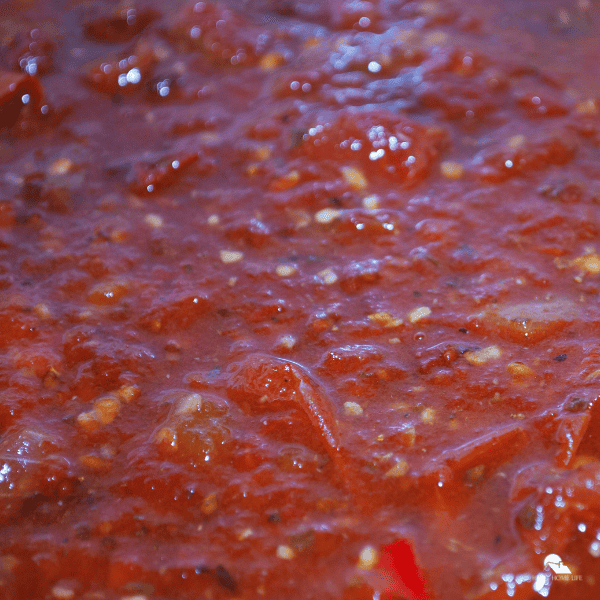
Recognizing Spoiled Spaghetti Sauce
It’s important to know when your spaghetti sauce has gone bad. Here are some signs to look out for:
Mold
If you spot mold growing on the surface of your spaghetti sauce, it’s time to throw it out. Mold can cause serious health problems, so it’s best to err on the side of caution.
Odor
If your spaghetti sauce smells off or has a sour odor, it’s likely spoiled. Trust your sense of smell and discard the sauce if it doesn’t smell right.
Spoiled Appearance
Spoiled spaghetti sauce may have an unusual color or texture. If it looks slimy or runny, it’s likely gone bad. Additionally, if the sauce has separated or looks curdled, it’s time to toss it.
Runny Consistency
If your spaghetti sauce has become watery or runny, it’s likely spoiled. This can be due to bacteria growth or improper storage.
Off-Color
If your spaghetti sauce has changed color, it’s likely spoiled. The sauce may have turned a darker shade or may have developed a greenish hue.
Overall, if you have any doubts about the safety of your spaghetti sauce, it’s best to throw it out. It’s better to be safe than sorry when it comes to spoiled food.
Freezing and Thawing Spaghetti Sauce
Freezing homemade spaghetti sauce with meat is a great way to extend its shelf life. Properly frozen spaghetti sauce can last in the freezer for up to 3-4 months without losing its flavor. Here are some tips on how to freeze and thaw spaghetti sauce:
Freezing Spaghetti Sauce
- Let the sauce cool down to room temperature before freezing. This will prevent the formation of ice crystals that can affect the texture of the sauce.
- Use freezer-safe containers or freezer bags to store the sauce. Be sure to leave some headspace to allow for expansion as the sauce freezes.
- Label the containers with the date of freezing and the contents. This will help you keep track of how long the sauce has been in the freezer.
- Place the containers in the freezer and make sure they are stored in a single layer. This will allow for faster freezing and easier thawing.
Thawing Spaghetti Sauce
- To thaw spaghetti sauce, transfer the container from the freezer to the fridge the night before you plan to use it. This will allow the sauce to thaw slowly and safely.
- If you need to thaw the sauce quickly, you can place the container in a bowl of cold water. Change the water every 30 minutes until the sauce is fully thawed.
- You can also thaw spaghetti sauce in the microwave. Place the sauce in a microwave-safe dish and heat on medium power for 5-10 minutes, stirring occasionally.
- Once the sauce is thawed, reheat it on the stovetop over low heat for about 15 minutes, stirring occasionally. You can also microwave it for a quicker option.
Overall, freezing and thawing spaghetti sauce is a great way to extend its shelf life and reduce food waste. By following these simple tips, you can enjoy homemade spaghetti sauce with meat all year round.
Reheating Spaghetti Sauce
If you have leftover homemade spaghetti sauce with meat in the fridge, you may be wondering how to reheat it properly. Here are some tips to help you reheat your spaghetti sauce while maintaining its flavor and texture.
Stovetop Method
The stovetop method is one of the best ways to reheat spaghetti sauce. Here’s how to do it:
- Pour the spaghetti sauce into a saucepan or pot.
- Heat the sauce on medium heat, stirring occasionally until it starts to boil.
- Once boiling, reduce the heat to low and let the sauce simmer for about 10 minutes with no lid, stirring occasionally.
- You will notice your pasta sauce has thickened and reduced a little bit. That means it is ready.
Microwave Method
If you’re in a hurry, you can also reheat your spaghetti sauce in the microwave. Here’s how to do it:
- Pour the spaghetti sauce into a microwave-safe bowl.
- Cover the bowl with a microwave-safe lid or plastic wrap.
- Heat the sauce on high for 1-2 minutes.
- Stir the sauce and heat for another 1-2 minutes until it’s hot all the way through.
Tips for Reheating Spaghetti Sauce
- Be sure to bring the sauce to a simmer to kill any bacteria that may have formed.
- To prevent the sauce from drying out, add a little bit of water or broth while reheating.
- If the sauce is too thick, add a little bit of milk or cream to thin it out.
- You can also add some fresh herbs, such as basil or oregano, to enhance the flavor of the sauce.
- Avoid reheating the sauce more than once, as this can increase the risk of food poisoning.
By following these tips, you can enjoy a delicious pasta dinner with meat using your leftover homemade spaghetti sauce.

To summarize, homemade spaghetti sauce with meat can last in the fridge for 3-4 days if stored properly in an airtight container. However, the sauce’s quality, texture, flavor, and consistency may start to deteriorate after the first day. It’s important to reheat the sauce thoroughly to kill any bacteria that may have formed.
If you want to extend the shelf life of your spaghetti sauce with meat, consider freezing it. The sauce can last between 4 and 6 months in the freezer and is of high quality. When thawing frozen sauce, it’s best to do so in the fridge overnight and then reheat it on the stove.

